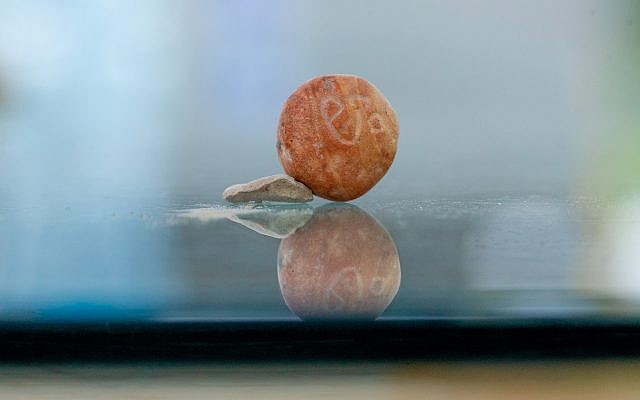Matthew Chapter 1
Genealogy (v1-17)
14 generations
- 1st 14 generation: Abraham to David (1000 years)
- 2nd 14 generation: David to Josiah (400 years)
- 3rd 14 generation: Joconiah (Jehoiachin) to Jesus (600 years)
The genealogy in Matthew is abridged. Some names are omitted, as was frequently done in genealogies, without invalidating the line of descent. For example three kings are missing between Uzziah and Jotham. The more complete genealogy is in 1 Chronicle 1-9.
Matthew wanted to establish the Lord Jesus has the correct qualifications to be the Messiah, and the King of the Kingdom of Heaven. He gave the genealogy to prove that the Lord Jesus is the descendent of David and Abraham in v1-17, that is the Lord Jesus’s human heredity. He gave the birth story of the Lord Jesus to prove that the Lord Jesus is the Son of God, that is the Lord Jesus’s divine heredity.
Take note that David is mentioned first, before Abraham in the Genealogy, it is probably done in purpose to emphasize Jesus is the descendent of King David whom fulfill the promise from God to King David.
There are two major promises from God to the Jews in OT. The first is the promise to Abraham after Abraham has passed the test from God in the incident of offering Isaac as the sacrifice. God promised Abraham through his offspring all nations on earth will be blessed because you have obeyed me (Gen 22:18). The offspring, or seed is singular, it is a prophesy of the Lord Jesus.
The other promise is from God to King David, when King David was thinking about building a temple for the ark of God. God promised to King David his offspring will build a house for God’s Name, and God will establish the throne of his kingdom forever (2 Sam 7:13). God elaborate: “You house and your kingdom will endure forever before you, your throne will be established forever.” (2 sam 7:16).
Only The Lord Jesus is qualified and able to fulfill both promises.
Father
The greek word for the word “father” of someone use throughout the genealogy is “gennao” (G1080), it is the same word used on v16 for Mary to give birth to Jesus. “and Jacob the father (gennao) of Joseph, the husband of Mary, of whom was born (gennao) Jesus, who is called Christ. Jesus is different from the rest of the men in the genealogy because Jesus was “gennao” of a woman, where else the rest of the men were “gennao” of a man. It is because Jesus is the “seed”, the offspring of woman promised by God to crush the head of Satan (Gen 3:15).
Why did Matthew start the gospel with a genealogy?
Although all the books in the bible was inspired by the Holy Spirit, and is God’s word to all humanity. Each individual book has a specific human writer and a specific group of audiences. Matthew was mainly writing to Jews to tell them Jesus is the King of the Kingdom of Heaven, the Messiah they have been waiting for centuries. He wants to establish to the readers that Jesus is the descendant of David and Abraham. It is because God has made a covenant with both of them. In Luke 2:32, angel Gabriel appeared to Mary and told her the Lord God will give the child the throne of his father David.
In Genesis chapter 5, there is a genealogy of the descendants of Adam. The phase “and then he died” followed each of the name in the genealogy. In contrast, in the genealogy of the Lord Jesus in Matthew, the word “father” or “give birth” followed each person. “For as in Adam all die, so in Christ all will be made alive!” (1 Corinthians 15:22).
Why is the genealogy in Luke different?
Matthew recorded the genealogy in a chronological order, starting from Abraham and ended with Jesus. The purpose is to show that Jesus is the One who fulfilled the promises of God to David and Abraham.
Luke recorded the genealogy in reverse chronological order, starting from Jesus and ended with God.
Both genealogy are the same from Abraham to David. They deviate from David onwards. Matthew was tracing the genealogy of Joseph, the adopted father of the Lord Jesus. Joseph was the descendent of Solomon, son of David. Luke was tracing the genealogy of Mary, the mother of the Lord Jesus. Mary was the descendent of Nathan, son of David.
Five Women in Genealogy
There are five women in the Lord’s genealogy:
- Tamar (v3): A Canaanite. She is the daughter in-law for Judah. Judah is the 4th son of Jacob (Gen 29:35), his name means “Praise”. Her story is recorded in Gen 38. When two of her husband died, Tamar disguise as a prostitute and sleep with Judah and had a twins: Perez and Zerah. Perez became the ancestor of the Lord Jesus.
- Rahab (v5): She was a gentile. Her story was recorded in Joshua 2. She was a prostitute who saved the live of the men that was spying on Jericho, as a result her own life was spared when the Israelites conquered Jericho. Although she was a gentile, she heard about God and believed in Him (Josh 2). Her name is recorded in the list of faithful men and women in Hebrew 11 (Heb 11:31) as well as in James 2:25. We are informed in this genealogy that she became the mother of Boaz, the ancestor of the Lord Jesus.
- Ruth (v5): Ruth was a Moabite who married into a Jews family and later became a widow. She remarried to Boaz and became the ancestor of the Lord Jesus. She story was recorded in a book with her name as the title
- Bathsheba (v6): Her story is recorded in 2 Sam 10.
- Mary (v16). She bore the perceived stigma of pregnancy outside of married. Her story is recorded in (Matt chapter 1 and 2, Luke chapter 1 and 2, John 2:1-11, Matt 12:46, Mark 3:31, Luke 8:19, Matt 13:55-56, John 19:25-27, Acts 1:14)
Each of these women had various degrees disgraceful background, at least from human perspective, but by the grace of God, they became ancestor of the Lord Jesus, as partakers in the eternal plan of God.
Many of the people mentioned in the genealogy were not faithful to God. For example Rehohoam, Abijah, Ahaz, Amon and Jeconiah (Jehoiachin). Even the faith men and women had committed great sins. King David stands out on this category because Matthew called him out in the genealogy that he had adultery with someone else’s wife. This sinful men and women are in great contrast with the Lord Jesus, who lived a sinless life, but ended his life on the cross to redeem the sinners. The genealogy reminds us that no matter how great our sins are, God’s grace is sufficient.
The Birth of Jesus (v18-24)
These are the characters in the story: Jesus, Holy Spirit, the Lord, Mary, Joseph, Angel of the Lord, Isaiah. Pay attention that all three persons of the Trinity God shows up in this story. We are told the meaning of the name Jesus: to save (G4982: sozo) his people from their sins. The name of Jesus reveals to us the reason why he was born. We need to read Luke chapter 1 and 2 to have a complete view of the story of the birth of Jesus.
Joseph
Joseph means “Jehovah has added”. Matthew calls him righteous man. What is the meaning of righteous man? It does not mean he is perfect without sins. It means he is a man who fears God. Joseph was the descendent of King David and the adopted father of Jesus. The angel of the Lord spoke to him in dreams, 1st time when he first found out Mary was pregnant by the Holy Spirit with Jesus in chapter 1. The second time was when King Herod wanted to kill baby Jesus in chapter 2.
According to Deut 22:23-24, a woman should be stoned to death if she had a sexual conducts with another man who is not her future husband. Joseph didn’t want that to happen to Mary because he loved her and he is a righteous man. He chose not to expose her pregnancy by divorcing her quietly.




发表评论